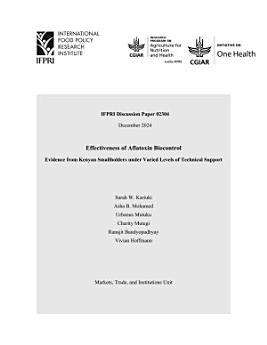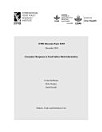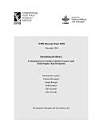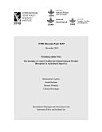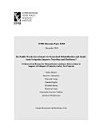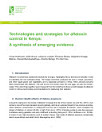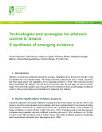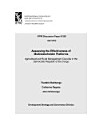Effectiveness of aflatoxin biocontrol: Evidence from Kenyan smallholders under varied levels of technical support
Kariuki, Sarah W. · Mohamed, Asha B. · Mutuku, Urbanus · Mutegi, Charity · Bandyopadhyay, Ranajit · Hoffmann, Vivian
يناير 2025 · IFPRI Discussion Papers الكتاب 2304 · Intl Food Policy Res Inst
كتاب إلكتروني
37
صفحة
family_home
مؤهل
info
reportلم يتم التحقّق من التقييمات والمراجعات. مزيد من المعلومات
معلومات عن هذا الكتاب الإلكتروني
Agricultural technologies shown to be highly effective in research trials often have a lower impact when utilized by smallholder farmers. Both heterogeneous returns and suboptimal application are believed to play a role in this efficacy gap. We provide experimental evidence on the impact of a biocontrol product for the control of aflatoxin, a carcinogenic fungal byproduct, as applied by smallholder farmers in Kenya. By varying the level of external support across farmers, we investigate the role of misapplication in the effectiveness gap. We find that the provision of biocontrol together with a one-time training on application reduces aflatoxin contamination in maize relative to a control group by 34 percent. Additional training to the farmers in the form of a call to remind them of the correct time of application in the crop cycle increases the reduction to 52 percent. Our findings indicate that farmers can achieve meaningful improvements in food safety using biocontrol even with minimal training on its use and that additional support at the recommended time of application can strengthen its impact.
تقييم هذا الكتاب الإلكتروني
أخبرنا ما هو رأيك.
معلومات القراءة
الهواتف الذكية والأجهزة اللوحية
ينبغي تثبيت تطبيق كتب Google Play لنظام التشغيل Android وiPad/iPhone. يعمل هذا التطبيق على إجراء مزامنة تلقائية مع حسابك ويتيح لك القراءة أثناء الاتصال بالإنترنت أو بلا اتصال بالإنترنت أينما كنت.
أجهزة الكمبيوتر المحمول وأجهزة الكمبيوتر
يمكنك الاستماع إلى الكتب المسموعة التي تم شراؤها على Google Play باستخدام متصفح الويب على جهاز الكمبيوتر.
أجهزة القراءة الإلكترونية والأجهزة الأخرى
للقراءة على أجهزة الحبر الإلكتروني، مثل أجهزة القارئ الإلكتروني Kobo، عليك تنزيل ملف ونقله إلى جهازك. يُرجى اتّباع التعليمات المفصّلة في مركز المساعدة لتتمكّن من نقل الملفات إلى أجهزة القارئ الإلكتروني المتوافقة.
